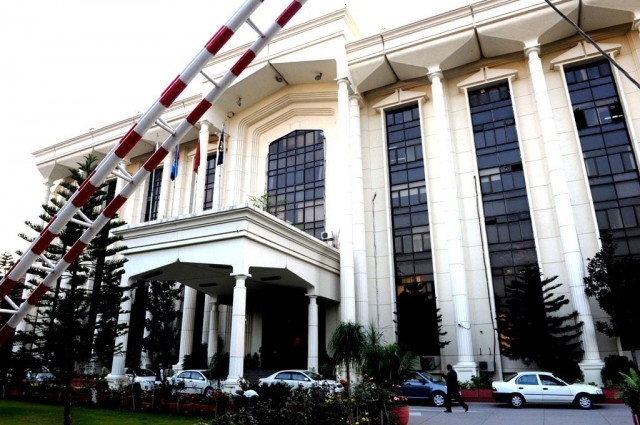Taxmen, experts lock horns over rationalising penalties
FBR slaps fines for two dozen offences, but it fails to expand tax net

PHOTO: AFP
The Tax Reforms Implementation Committee (TRIC), constituted by the federal government to simplify tax laws, had proposed a drastic reduction in penalties from fiscal year 2017-18.
The Federal Board of Revenue (FBR) charges penalties on almost two dozen offences including failure to file income tax return, wealth statement, non-provision of banking information, non-issuance of invoices, failure to maintain and produce record, giving false statement and obstruction in official work.
The penalties and offences are defined in Section 182 of the Income Tax Ordinance 2001.

However, the FBR has so far failed to convince banks to provide information about their accountholders. It has also failed to broaden the tax base that remains stagnant at around 1.1 million return filers.
Sources said TRIC wanted the FBR to cut down penalties in the new budget to facilitate the taxpayers. However, the FBR argued that only punitive measures would deter people from violating the law. It did not want any change in the relevant legal provision.
During his interaction with the FBR, Finance Minister Ishaq Dar on Tuesday directed the body to ensure tax facilitation in the new budget that would be presented on May 26.
TRIC members are of the view that tax laws are too complex and the potential taxpayers prefer to remain out of the net, exposing themselves to various kinds of penalties, sometimes on minor procedural violations.
Last year, the Tax Reform Commission had recommended simplification of the tax laws as a short-term measure and may be a fresh tax code as a medium and long-term measure.
TRIC has proposed changes in the law, to be followed by corresponding changes in rules. Its mandate is to suggest simplification measures that require legislative changes as rules can be subsequently changed.
The TRC report terms poor enforcement of penalties and complex laws among the reasons for inefficient tax administration.
“The efficiency of tax administration is constrained by insufficient staff with appropriate skills, lack of appropriate equipment, complex tax laws, poor enforcement of penalties for tax evasion and corruption, poor information collection and identification of taxpayers,” the report said.
Currently, the FBR has the authority to impose up to 50% penalty of the payable tax on non-filing of income tax returns. TRIC has proposed that the penalty should be lowered to only 10%.
On failure of banks and financial institutions to furnish information, the FBR can impose a penalty of Rs2,500 for each day of default and minimum penalty of Rs10,000. TRIC has proposed that the penalty should be cut to Rs200 a day and maximum Rs5,000.
TRIC wants the FBR to abolish the Rs20,000 penalty on non-filers of wealth statement. External experts also call for no fine on erroneous calculations in the income tax returns as against 3% of the tax amount.
Any person, who fails to deposit due tax, is subject to a penalty of 5% to 50% of the tax default. TRIC has proposed that this should be lowered to the maximum of 10%.
The external experts have also suggested imposing maximum penalty of Rs10,000 on those who fail to furnish required information. Currently, the rate is Rs25,000 for first default and Rs50,000 for each subsequent default.
On the furnishing of false statement, TRIC has proposed only Rs10,000 or 5% of the shortfall as penalty against Rs25,000 or 100%, whichever is higher.
Published in The Express Tribune, May 12th, 2017.
Like Business on Facebook, follow @TribuneBiz on Twitter to stay informed and join in the conversation.



















COMMENTS
Comments are moderated and generally will be posted if they are on-topic and not abusive.
For more information, please see our Comments FAQ